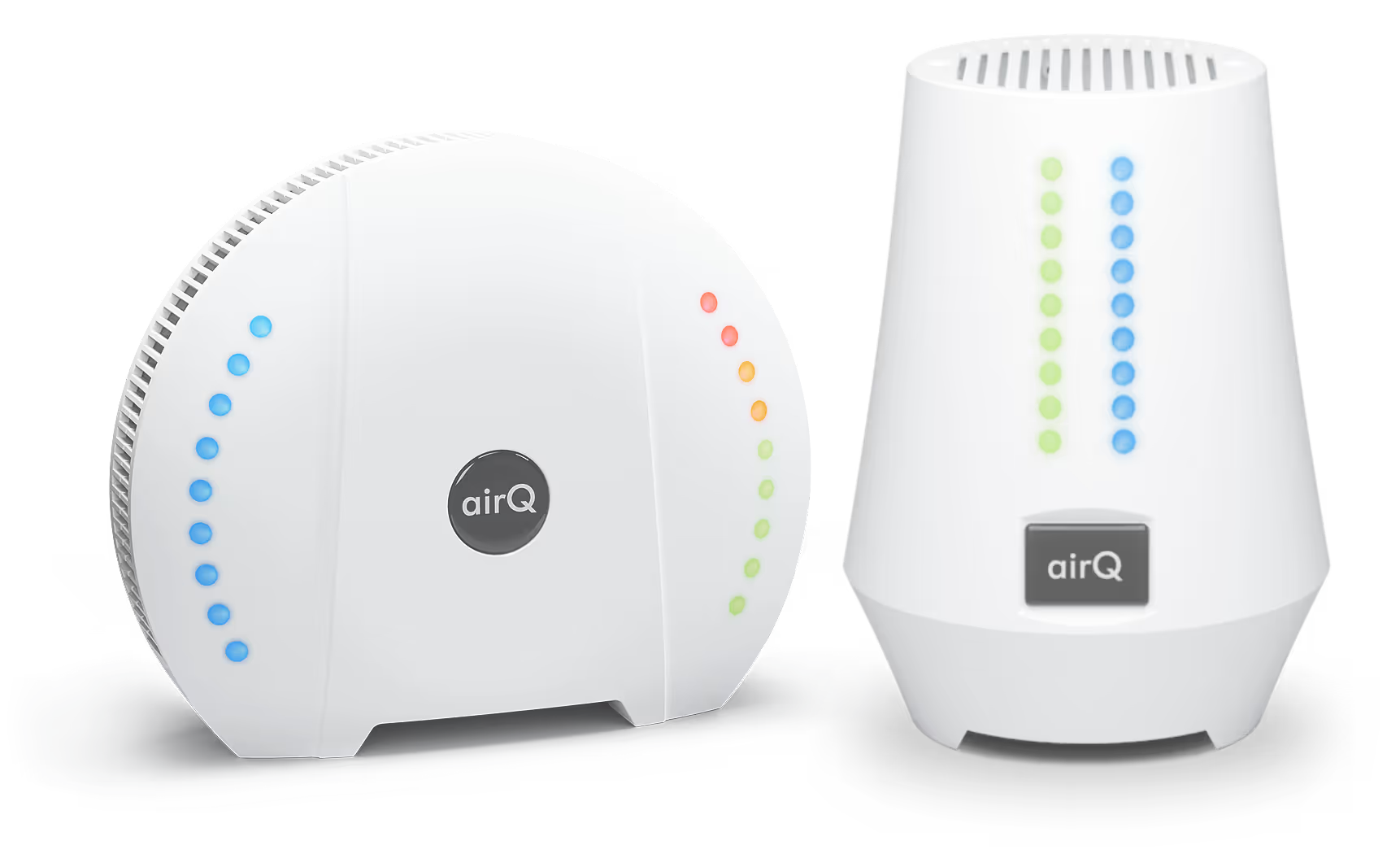The air-Q and the air-Q Radon with the in-house developed → Radon sensor module is the result of several years of research and development work. In addition to the sensor components, a complex, software-based algorithm was also developed that enables the detection of previously hidden particles in the air.


The technology of the air-Q has been developed since 2015 together with several scientific partners according to laboratory standards. The aim of the research was to develop an indoor air measuring device - the air analyser - with smart technology that measures air quality according to the most modern standards, but is compact and affordable at the same time. This meets the needs of both professional and private users who want to know more about the air they breathe.
To achieve the goals, individual sensor components have been completely redeveloped. Furthermore, there is the demand to make the measured parameters and values available in a way that is as easy to understand and transparent as possible. Software algorithms are even used to detect situations in the air that could previously only be clarified by laboratory tests. This makes the air-Q the most comprehensive, powerful and intelligent analyser of air and air quality - "Made in Germany".

114 × 135 × 43 mm
Temperature 0 to +50 °C (14 to +122 °F) Humidity 0–95%
WLAN
1.8 seconds in continuous operation
Oxygen (O₂), carbon dioxide (CO₂), carbon monoxide (CO), nitrogen dioxide (NO₂), sulphur dioxide (SO₂), ozone (O₃), formaldehyde [specific], VOC (volatile organic compounds as a group of substances: also reacts to methane, formaldehyde and other C-compounds), particle sizes PM₁, PM₂'₅ and PM₁₀), temperature, relative + absolute humidity, air pressure, noise level
(→ More sensors)
Hydrogen sulphide (H₂S), ammonia (NH₃), methane (CH₄), hydrogen (H₂), butane (C₄H₁₀), illumination/light sensor, others on → request.
16 GB Micro-SD for approx. 10 years of data
5 V USB plug-in power supply USB-A to USB-C, optional battery (e.g. USB power bank)

145 x 105 x 105 mm
Temperature 0 to +50 °C
Humidity 15 - 95 %.
WLAN
1.8 seconds in continuous operation
Radon(separate measuring module), carbon dioxide (CO₂), VOC (volatile organic compounds as a group of substances: also reacts to methane, formaldehyde and other C-compounds), particle sizes PM₁, PM₂'₅ , PM₄ and PM₁₀, particle count, temperature, relative + absolute humidity, air pressure,
(→ More sensors)
16 GB Micro-SD for approx. 10 years of data
5 V USB plug-in power supply USB-A to USB-C, optional battery (e.g. USB power bank)






Together with many partners, we develop the air-Q air analyser and the air-Q app to improve people's health and performance. Particularly important are our development partners, with whom we work daily on new solutions for healthy and conscious breathing and living.